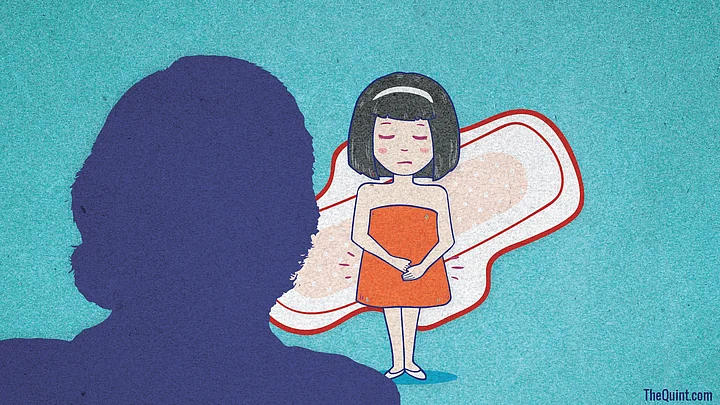India is the prime example of how everything and its opposites are ‘true’. Suddenly, a wave of light has shone upon the ‘hidden’, and ‘shameful’ issue of menstruation.
TV advertisements for sanitary pads are portraying a girl child going to school on her period, a menstruating woman lawyer fearlessly going to court, a sportswoman on her period smoothly performing a high jump — all because of the safety and comfort of sanitary pads.
A ‘Bloody’ History
Fifty years ago, a girl’s arrival into puberty was a cause of celebration, and saw the performance of rituals. She was kept away from heavy work to supposedly prevent strain on her body. As a practice, she became ‘untouchable’ for five days. Today, things are changing fast. An urban woman today has the confidence to perform —and outperform others — irrespective of the time of the month.
Governments have been progressive enough to install sanitary pad dispensers in some public spaces and schools.
There are open discussions that encourage conversations around menstruation, teaching one that it is simply a biological process that females can’t help but undergo. In fact, for most menstruating urban females with access to sanitary pads and hygiene products, menstruation is no longer a ‘problem’ and some females are even rejecting a proposal for ‘period leave’ from work.
On the other hand, the Supreme Court of India is dealing with a strange battle between petitioners who have been demanding entry into the Sabarimala temple for all women, and the Sabarimala Devaswom Board which is fighting to uphold the tradition of not allowing between the ages of 12 and 50 (most females of this age group menstruate).
Of Celibate Gods & Intolerance Towards ‘Bleeding’ Women
The Board claims that the particular avatar of the deity in the temple is celibate. So, menstruating women cannot enter the temple, because the idol would be, what – embarrassed, tempted, agitated? This is a deity that has been imbued with characteristics by a regressive male-dominated society centuries ago. But today, we have an enlightened Supreme Court that is inclined to support equity for the LGBTQ communities.
To add to the contradictions, a third party of women has popped up, which says they are part of the ‘willing to wait till they are 50’ group!
Some of the arguments being put forward in the Supreme Court are treading on slippery ground. People are permitted to have different faiths and beliefs, but contention begins when one attempts to dominate the other. All interpretations of God and religion have sprung out of the human mind. A quirk in our neurological wiring gave us the power to have ideas, and from that, sprung the entire world of divinity, sacredness, spiritualism, God —whose word became the holy scriptures — clearly created for the benefit, and not the division, of humankind.
To create a deity that is celibate and who cannot stand the presence of menstruating women, is a representation of weakness that is turned on its head to exclude — and thus dominate women — through a set of unreasonable, patriarchal rules. J
Just as a woman should not be held responsible for her own sexual assault under any circumstance, she also ought not be held responsible for agitating a so-called celibate deity.
The Way Forward
Another strange argument being served up by lawyers is that the penance and physical discomfort men are expected to undergo before visiting Sabarimala temple is too strenuous for women. This is the first time we are hearing that, what is considered to be strenuous for a woman in the prime of her youth, is not a strain if she is under 12 or over 50 years of age.
Surprisingly enough, the controversial Sabarimala temple allows Muslim and Christian women visitors — unlike some temples.
It indicates that, while the Sabarimala temple accepts man-made societal divisions of religion quite easily, it can’t accept real divisions created by Nature or God, which makes the female sex bleed for a few days every month.
The core values of any religion comprise humanity, compassion, justice and equality. Without these, the rest is mere ritual. In the contemporary world, which is well-equipped to give space to traditions that uphold the same values, it is the space occupied by courts of law, not temples, that dispense these values. We should be able to respect both perceptions of god, deities and religion (in this case the celibacy of a deity) — and women’s rights evenly — so that they can be chosen by each individual — whether male or female — and not by patriarchal religious overlords, irrespective of the religion.
(The author is a social activist and former president of the Samata Party, a coalition partner in the NDA-I government. She tweets @Jayajaitly. This is an opinion piece and the views expressed above are the author’s own. The Quint neither endorses nor is responsible for the same.)
(At The Quint, we question everything. Play an active role in shaping our journalism by becoming a member today.)
